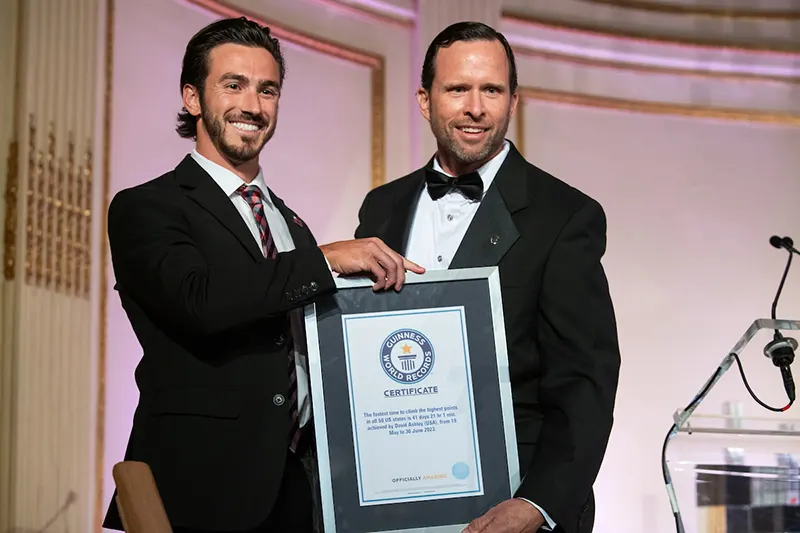
David Ashley, a living kidney and liver donor, has just been acknowledged by Guinness World Records for achieving the “fastest time to climb the highest points in all 50 US states.”
His accomplishment, which was sponsored by the National Kidney Registry, saw him summit the highest point in all 50 US states in 41 days, 21 hours and 1 minute, besting the previous Guinness World Record by more than one full day.
Ashley was joined by other living kidney donor mountaineers for many of his summits and was supported by two living donor team members who helped facilitate the detailed logistics of each summit attempt as well as travel between the high points of each state.
“We’re so thrilled that Guinness has acknowledged this remarkable effort,” said Michael Lollo, Chief Strategy Officer at the National Kidney Registry. “Dave and his team continue to challenge themselves athletically in a big way to show that one kidney is enough and having only one will not prevent you from doing almost anything. Dave and his team did all of this to raise awareness and to normalize living kidney donation.”
Ashley and his team began their attempt at Denali, Alaska on May 19 and concluded with a summit of Gannett Peak in Wyoming on June 30.
“Accomplishing this challenge is awesome in and of itself,” said Ashley. “Having it commemorated with a Guinness World Record will hopefully bring more attention to living kidney donation. We want people to realize that donating and living with one kidney in no way diminishes athletic ability.”
Ashley, 49, is a retired Air Force Colonel who donated his kidney to a West Point classmate in 2017. In 2020, he anonymously donated a portion of his liver to a stranger in need. He was previously sponsored by the National Kidney Registry when he became the first living kidney donor, living liver donor and double organ donor to climb the seven summits in 2022.
The National Kidney Registry is dedicated to saving and improving the lives of people facing kidney failure by increasing the quality, speed, and number of living donor transplants in the United States while protecting all living kidney donors.
*Please note that this is an archived press release and any / all information contained herein may now be outdated.
Back to Press Releases